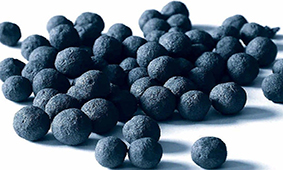
Malaysia's lockdown closes pellet factories

Malaysia announced on 16 March that it would impose the lockdown from 18-31 March. This includes shutting all non-essential businesses until the end of the month.
The closure comes at a time when raw material shortages have tightened the supply of wood pellets from Vietnam and Malaysia as a result of China's reduced demand for furniture and wood products following the outbreak of the coronavirus. Some exporters have also complained of a tighter supply of container vessels for exporting wood pellets as a result of reduced South Korean container traffic because of the coronavirus outbreak. Fob Vietnam wood prices edged up over the past week to close at $98.95/t on 18 March.
South Korea is the biggest buyer of Malaysian wood pellets, followed by Japan that only recently began importing them. South Korea received 520,000t of wood pellets from Malaysia in 2019, and stepped up the intake this year by importing 92,000t in January-February, according to South Korea's custom's data.
But a number of South Korean traders said on 18 March that they were not too concerned about Malaysia's lockdown as they believed delayed cargoes from Malaysia could be rescheduled after discussions with buyers.
The Malaysian palm oil association has appealed to the government to allow plantations and mills to operate during the movement restriction period — a request that was granted last night. Association members had been urged to implement standard operating procedures and adhere to government guidelines to contain the virus, or their approval to operate would be revoked.
The reprieve means that palm plantations and mills in Malaysia may resume operations during the lockdown. This should go some way in relieving market concerns about a further tightening of PKS supplies, assuming that workers can find transport to reach their work places during this lockdown.
The impact of Malaysia's lockdown also remains unclear on other logistics fronts. Market participants found that ports were open yesterday but that some government offices that exporters need for sign-offs on necessary documents were closed. And stevedores needed to load the cargoes might not be available during this lockdown period.
PKS supply in Indonesia and Malaysia is already tight because of the low production of fresh fruit bunches. This pushed the spot east coast Sumatra Indonesian PKS price up above $100/t this week for the first time since Argus began the assessment in May 2017. Argus assessed the price at $101.42/t on 18 March, an 11pc increase from the beginning of this year.
Malaysia exported 707,000t of PKS in 2019, up by 88pc from a year earlier. It supplied 628,000t of that to leading PKS buyer Japan in 2019 as the country brought new biomass power plants on line during the year to take advantage of the country's feed-in-tariff scheme for renewable energy.
By Sam Hong, Claire Pickard-Cambridge and Amandeep Parmar


Gold price edges up as market awaits Fed minutes, Powell speech

Glencore trader who led ill-fated battery recycling push to exit

Emirates Global Aluminium unit to exit Guinea after mine seized

UBS lifts 2026 gold forecasts on US macro risks

Iron ore price dips on China blast furnace cuts, US trade restrictions

Roshel, Swebor partner to produce ballistic-grade steel in Canada

US hikes steel, aluminum tariffs on imported wind turbines, cranes, railcars

EverMetal launches US-based critical metals recycling platform

Afghanistan says China seeks its participation in Belt and Road Initiative

First Quantum drops plan to sell stakes in Zambia copper mines

Ivanhoe advances Kamoa dewatering plan, plans forecasts

Texas factory gives Chinese copper firm an edge in tariff war

Pan American locks in $2.1B takeover of MAG Silver

Iron ore prices hit one-week high after fatal incident halts Rio Tinto’s Simandou project

US adds copper, potash, silicon in critical minerals list shake-up

Barrick’s Reko Diq in line for $410M ADB backing

Gold price gains 1% as Powell gives dovish signal

Electra converts debt, launches $30M raise to jumpstart stalled cobalt refinery

Gold boom drives rising costs for Aussie producers

First Quantum drops plan to sell stakes in Zambia copper mines

Ivanhoe advances Kamoa dewatering plan, plans forecasts

Texas factory gives Chinese copper firm an edge in tariff war

Pan American locks in $2.1B takeover of MAG Silver

Iron ore prices hit one-week high after fatal incident halts Rio Tinto’s Simandou project

US adds copper, potash, silicon in critical minerals list shake-up

Barrick’s Reko Diq in line for $410M ADB backing

Gold price gains 1% as Powell gives dovish signal

Electra converts debt, launches $30M raise to jumpstart stalled cobalt refinery

















